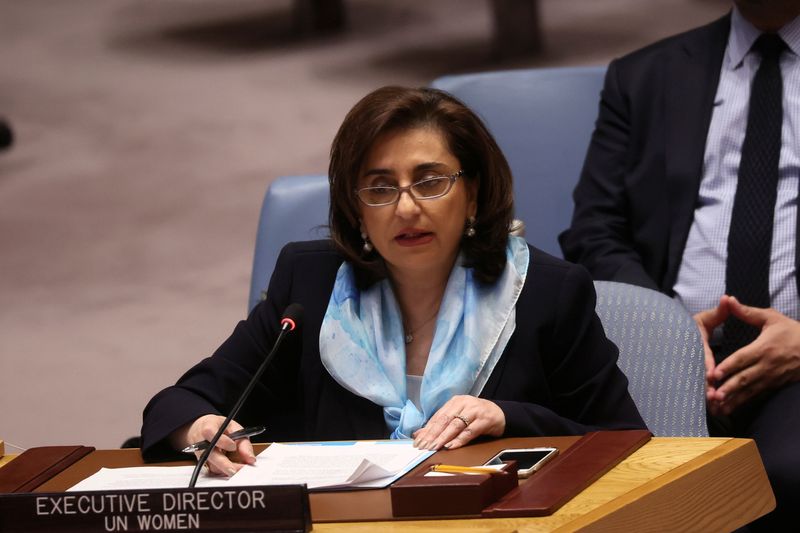By Dina Kartit
(Reuters) - Violence and threats towards women still act as a deterrent to their involvement in politics, the U.N. gender equality organisation said, despite more women holding office.
Data showed that the number of women in political leadership posts, both in government and in parliament, has improved overall, though, some regions such as the Middle East and North Africa lagged far behind.
"Continued violence and threats—online and offline—against women leaders, candidates, and voters blight the potential for their voices and knowledge to bring the change that is so urgently needed for economic and social recovery," U.N. Women Executive Director Sima Bahous in a statement.
"Full democracy needs the equal participation of women in all its processes," the U.N. body added in its report on Tuesday, ahead of International Women's Day.
As of Jan. 1, 17 out of 151 nations (11.3%) have had women as heads of state (monarchy-based systems excluded), and 19 out of 193 countries (9.8%) as heads of government, improving from a decade ago when figures stood at 5.3% and 7.3%, respectively.
Of all regions, Europe ranked first with 16 countries led by women.
Women accounted for 22.8% of cabinet members worldwide as of Jan. 1.
The highest proportion was in Europe and North America, followed by South America and the Caribbean. Women's representation was the lowest in Central and Southern Asia and the Pacific Islands (excluding Australia and New Zealand), where there were no women in cabinets in nine countries.
The organisation's data also showed the global average number of women in national parliaments had inched up to 26.5% as of Jan 1., from 25.5% a year ago.

European Union statistics office's data published on Wednesday showed that women across the EU held 32.7% of all parliamentary seats in July 2022, while in the rest of the world, Rwanda, Cuba and Nicaragua had more women than men in parliament.
The region grouping the Middle East and North Africa remained at the bottom of the regional ranking with fewer than 18% of female members of parliament, the U.N. Women's data showed.